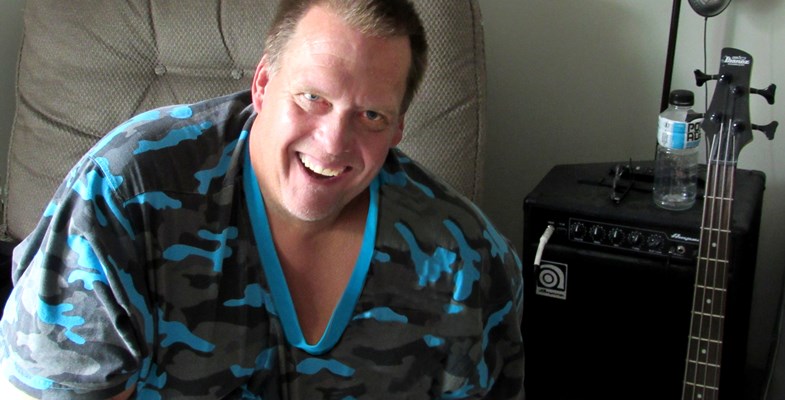Doug is a goal setter and hard worker. He worked in the service and sales industries for over twenty years. He achieved the height of success, owning his home and his car. But he worked over twelve hours per day, ate for convenience, and did not prioritize exercise, social events and family time. Things changed two years ago when his lifestyle caught up with him and an illness put Doug in the hospital for a lengthy stay. When he was in the hospital, he was unable to walk. Doug knew he needed rehab and went to a nursing home.
His time in the nursing home lasted longer than he expected. He went from being financially and physically independent to being waited on and reliant on staff. He says being at the nursing home is “not reality when you’re there, they do everything for you. You get used to the level of care and you don’t have to ‘adult’. It’s easier for them to leave someone in bed then to get them up, bathe and dress. It’s easier for them to just let [residents] chill. I got up and fought every day. I went to recreation and tried to keep myself occupied because otherwise I’d melt into the background like everybody else.”
Doug was lucky to have a social worker (SW) at the nursing facility who suggested the Money Follows the Person (MFP) program to him. “[While in the hospital] I had lost my house and everything in it, the only place I had to live was [the nursing facility].” The SW thought he would be a good candidate for MFP and worked with him directly to introduce the MFP team. The first time he met his care manager she spent two hours laying out a transition plan including a goal analysis for his physical and mental progress and outlining the program. He says the care manager gave him a lot of direction and encouraged him to pursue life in the community again. The housing coordinator found him an apartment immediately: “The housing search was non-existent. That’s how good [the housing coordinator] was.” Because Doug had lost everything while he was at the nursing facility, he had no possessions. His transition coordinator provided him with “everything they thought I needed to get started. It was a big help.” He adds, “Without the program, I would have figured it out, but it wouldn’t have been solid. I have a home now.”
When he first moved into his apartment, Doug used the local paratransit service to attend doctor’s appointments and other community events. However, he now is able to drive his own car in the community. Doug has lost over 150 lbs since leaving the nursing facility. He attributes much of his success to a membership at a local wellness center where he uses the pool. Doug estimates that he swims for about four hours a day, five times a week (including water aerobics, laps and walking). Doug says his exercise routine not only has strengthened his weight loss goals but also is beneficial to his mental and emotional health. He says he never thought he would be able to go to a public pool but his goals keep him focused. At home, Doug focuses on his hobbies like playing guitar and singing.
Doug says his mental health has improved significantly since settling into his apartment. “The program has been an amazing tool to get back on my feet. Without the help I would have gotten out of the hospital and failed and ended up back at the hospital and it would have been a revolving door. Now I can move forward.” Doug looks forward to losing weight in the future. He doesn’t have a number in mind but knows he wants to feel good. “I now have a path to success instead of a path to failure. [MFP] helped me in ways that allow me to focus on my health and get better. I don’t want to stay disabled forever.”





